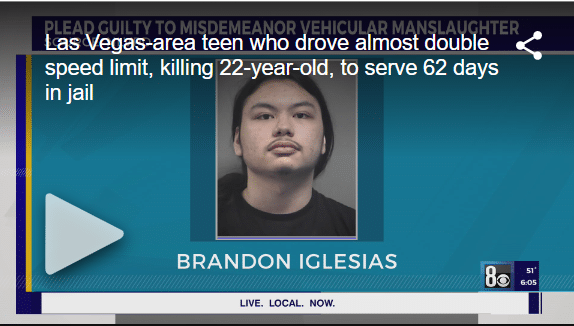In Nevada, have you ever wondered about the seriousness of not returning a rental item or renting something under false pretenses? This act, known as conversion of rented or leased personal property, is a significant legal offense that could lead to severe repercussions.
Under Nevada law, engaging in the act of renting personal property under misleading information or failing to return leased items upon the agreement’s conclusion is illegal. This crime, identified as conversion, is taken very seriously and could entail heavy penalties including imprisonment, fines, and the necessity for restitution. However, it’s important for accused individuals to know that there is hope. A skilled defense attorney from ATAC LAW can negotiate with prosecutors, potentially leading to reduced charges or even complete dismissal before reaching trial.
What Happens If You Don’t Return What You’ve Rented in Las Vegas, Nevada?
In Las Vegas, Nevada, failing to return rented personal goods, or acquiring them through deceit, constitutes a legal violation known as “conversion of rented or leased personal property.” This crime encompasses two main behaviors: dishonestly acquiring personal property for rent, and deliberately not returning rented items. It’s critical to note that this law specifically pertains to movable items like electronics, fashion accessories, furniture, and more, excluding real estate and buildings.
Acquiring Rented Property Through Deceit
In Nevada, it’s illegal for someone to gain possession of rented personal items through fraudulent means. This includes any deception, such as providing false information about one’s identity, place of living, job status, or driver’s license. Misrepresenting facts to rent property is a punishable offense.
Deliberately Withholding Rented Items
The crime extends to situations where an individual (referred to as the lessee) purposefully does not return items to the rightful owner (the lessor) under certain conditions. These include having a written agreement on the return specifics, failing to abide by the agreed return timing and place, possessing an intent to defraud the lessor or to keep the items without permission, ignoring a written demand sent via registered mail for the item’s return, and not returning the item to the lessor’s business within 72 hours post-demand.
The court may infer an intent to defraud if the individual does not return the rented property as per the agreement’s conditions.
Common Instances of Conversion
Instances of this legal offense in Las Vegas might be, for example, neglecting to return a rented video game to the store, keeping a borrowed tuxedo from a rental service, or not returning loaned jewelry to a jeweler. Notably, failing to return a rented vehicle generally falls under embezzlement charges in Nevada, though the penalties mirror those for conversion.
What Are the Consequences for Not Returning Rented Property in Nevada?
If you are charged with not returning rented property in Las Vegas, Nevada, you could face serious repercussions, comparable to theft under NRS 205.940. The severity of the punishment correlates directly with the value of the property in question.
For items valued under $1,200, the law deems the offense a misdemeanor, with potential consequences including:
- A maximum of 6 months in jail,
- Fines that could reach $1,000,
- Compensation payments to the property owner.
Items with a value ranging from $1,200 to less than $5,000 upgrade the offense to a category D felony. Punishments for this category can include:
- Compensation payments,
- One to four years behind bars in Nevada State Prison,
- Fines at the judge’s discretion, up to $5,000.
Should the property’s value be between $5,000 and less than $25,000, the crime is considered a category C felony, accompanied by:
- A restitution requirement,
- A prison term stretching one to five years,
- Potential fines escalating to $10,000.
For property valued from $25,000 to less than $100,000, the offense is prosecuted as a category B felony. Convicted individuals face:
- A necessity to repay the owner,
- A sentence that could vary from one to ten years of incarceration,
- A fine, not exceeding $10,000.
Lastly, if the property is valued at $100,000 or more, the individual still faces a category B felony, with the possibility of:
- Making restitution,
- Spending one to twenty years in prison,
- Handing over a fine that may reach up to $15,000.
How Serious are the Immigration Consequences for Property Conversion in Nevada?
For immigrants in Nevada, being convicted of the conversion of rented or leased property can have harsh repercussions, potentially leading to deportation depending on the specifics of the case. It’s crucial for non-citizens facing such charges to engage a proficient criminal defense attorney, like those at ATAC LAW, who can work to negotiate the charges down to lesser, non-deportable offenses. This strategic legal action is vital to safeguard their ability to stay in the country.
How Can You Defend Against Charges of Not Returning Rented Property in Nevada?
In Nevada, facing charges for not returning rented or leased items can be a troubling situation. Yet, various defense strategies can be employed by a skilled criminal defense lawyer, such as those at ATAC LAW, to combat these accusations effectively. Below, discover key arguments that may help dismantle the prosecution’s case against you.
- Absence of a Written Contract:
A pivotal argument hinges on the existence (or lack thereof) of a written contract. If there’s no formal agreement specifying the conditions for the return of the property — including time and location — it’s challenging for a prosecution to hold you accountable. Legal proceedings usually require concrete evidence of an agreement authorized by the defendant. Without this documentation, the chances of case dismissal rise significantly. - Ownership Claims:
Ownership disputes offer another strong defense. The law clearly states one cannot be found guilty of converting property they lawfully own. Therefore, if it can be demonstrated that the nature of the agreement was misconstrued — perhaps it was a purchase rather than a rental agreement — then the foundation for conversion charges crumbles away. - The Burden of Proof Lies with the Prosecution:
In any criminal case, it is up to the prosecution to prove guilt beyond a reasonable doubt. This principle stands true for cases involving the conversion of rented or leased property. If a defense lawyer can effectively challenge the reliability, persuasiveness, or sufficiency of the prosecutor’s evidence, there’s a strong possibility that the charges might be withdrawn due to inadequate proof.
If you find yourself accused of such an offense, securing expert legal assistance from ATAC LAW can be critical. Our firm is adept at defending individuals against property conversion charges. We are committed to understanding the nuances of Nevada’s law related to unreturned or unlawfully acquired rented property. It is crucial to seek knowledgeable legal counsel immediately to avert the stark penalties associated with this crime. ATAC LAW stands ready to offer you the highest caliber of legal defense and ensure your rights are safeguarded through every step of the legal process.
For further legal assistance and to discuss your case with an expert, don’t hesitate to contact ATAC LAW.




